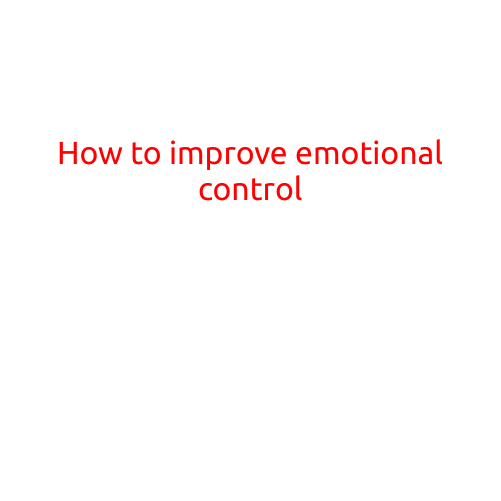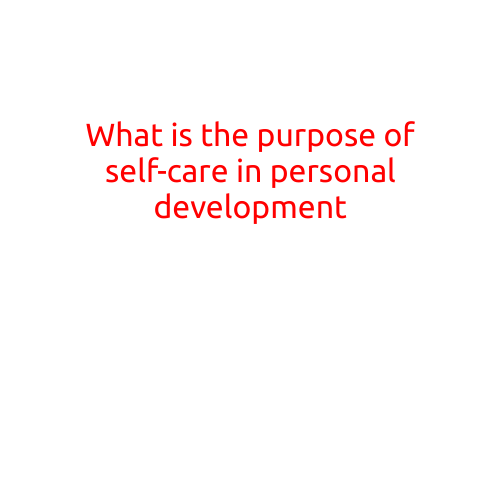
How to Improve Emotional Control: Mastering Your Feelings for a Better Life
Emotional control is the ability to recognize and manage your emotions in a healthy and productive way. It’s a crucial life skill that can benefit various aspects of your life, including your relationships, work, and overall well-being. However, achieving emotional control can be challenging, especially in today’s fast-paced and often stressful world. In this article, we’ll explore the importance of emotional control, its benefits, and provide practical tips on how to improve emotional control.
Why Emotional Control Matters
Emotional control is essential because it allows you to:
- Manage stress: Uncontrolled emotions can lead to increased stress levels, which can negatively impact your mental and physical health.
- Improve relationships: Effective emotional control enables you to communicate more effectively, resolve conflicts, and maintain stronger, healthier relationships.
- Increase productivity: Emotional control helps you stay focused and avoid distractions, leading to increased productivity and better work-life balance.
- Enhance self-awareness: Emotional control promotes self-awareness, enabling you to understand your emotions, values, and goals.
Benefits of Emotional Control
The benefits of emotional control are numerous and significant, including:
- Reduced anxiety and depression: Emotional control can help alleviate symptoms of anxiety and depression by teaching you to manage emotional turbulence.
- Improved self-esteem: When you’re in control of your emotions, you’re more likely to have a positive self-image and a greater sense of confidence.
- Better decision-making: Emotional control helps you make more rational, thoughtful decisions, rather than impulsive ones.
- More fulfilling relationships: Emotional control fosters deeper, more meaningful connections with others.
Practical Tips to Improve Emotional Control
- Recognize and acknowledge your emotions: Take time to identify and acknowledge your emotions. This simple step helps you become more aware of your emotional state.
- Practice mindfulness: Mindfulness meditation and exercises can help you stay present and focused, reducing emotional reactivity.
- Use the 4-7-8 breathing technique: This simple breathing exercise can help calm your emotional response and reduce stress.
- Engage in physical activity: Exercise releases endorphins, which can improve your mood and reduce stress.
- Practice self-compassion: Treat yourself with kindness, understanding, and patience when struggling with emotions.
- Develop emotional labeling: When emotions arise, label them accurately (e.g., “I’m feeling anxious right now”). This helps you detach from the emotion and regain control.
- Set boundaries: Prioritize self-care by setting healthy boundaries with others.
- Seek professional help: If you’re struggling with emotional control or experiencing intense emotions, consider seeking help from a mental health professional.
Conclusion
Emotional control is a valuable skill that can benefit various aspects of your life. By recognizing the importance of emotional control, understanding its benefits, and practicing these practical tips, you can master your emotions and achieve a more balanced, fulfilling life. Remember, improving emotional control takes time and practice, but the rewards are well worth the effort. Start your journey to emotional control today and discover a more confident, compassionate, and resilient you.





